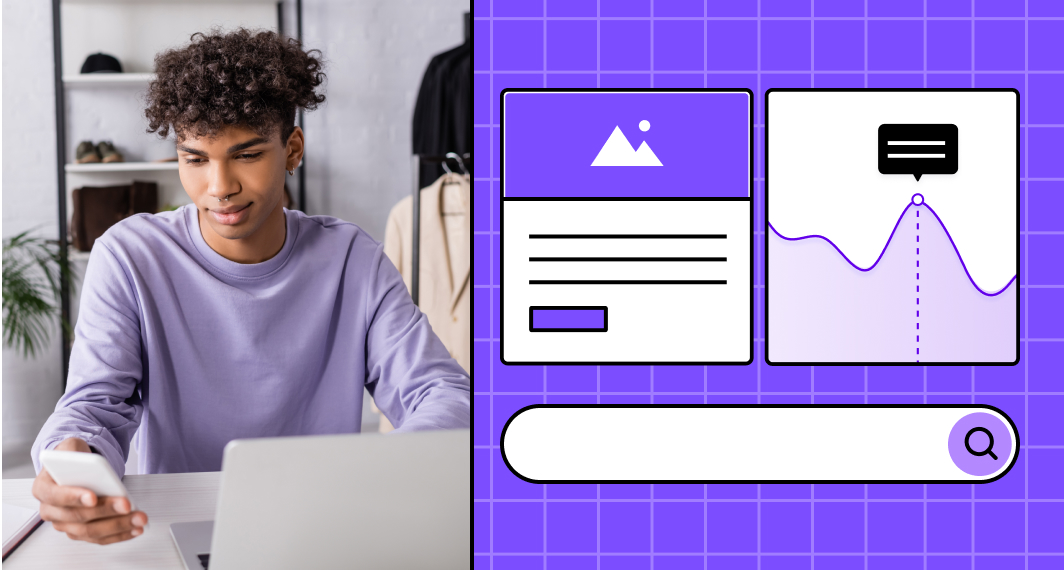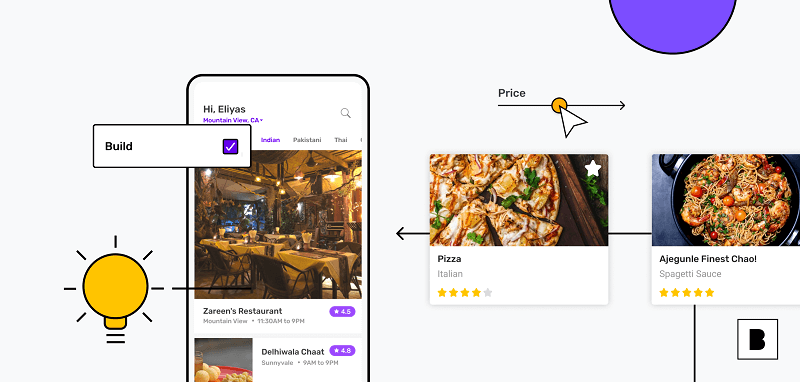What’s that:
Artificial intelligence (AI) isn’t going to steal all our jobs? It isn’t smarter than people? And Skynet isn’t going to try to conquer mankind, leaving our species’ fate in the hands of John Connor?
Dang. Well we may as well think about how we can live with it then, particularly in ecommerce.
In fact, the technology is already having a huge impact, whether it’s helping businesses to better forecast demand or recommending similar items to customers to enhance their shopping experience.
And in the remainder of 2022, that impact is only likely to increase. Here are 5 key trends you should explore to get ahead of your competitors
1 - Low-code and no-code AI

If you haven’t heard about the “democratisation” of technology, here’s the low down:
At first, when a new technology is developed, it’s limited to the technical industry. For example, the first digital computers were used by the United States Navy on board submarines during the late 1930s.
Democratising that technology—in other words, making it possible for the layperson to use—took over 30 years, with personal computers first becoming available to the general public in 1974.
The same has been the case for AI. But low/no-code platforms are set to unlock it.
They do this by making AI accessible in simple interfaces, allowing developers and even people with no tech knowledge to create their own AI systems. These can be used to help optimise sales or better understand the buyer journey.
Want to build your online store?
Book a demoSpeak with one of our product experts today.
By proceeding you agree to Builder.ai’s privacy policy and terms and conditions

2 - Demand forecasting

Knowing how much stuff you need: sounds simple, but it ain’t.
And getting it wrong can be catastrophic for all types of businesses. For example, say one unit from your store is worth $50 and you order 1,000 units, but you only manage to sell 500. That’s $25,000 worth of dead stock!
Not to worry. Demand forecasting, powered by AI, can help you out
With it, you’ll have a much better grasp on the market drivers that could influence your audience’s buyer journey, helping you to better predict the stock you need.
That extra cash in your account can then be reinvested into your business, helping you grow faster.
3 - Recommender systems

Ever wondered why Amazon doesn’t suggest you buy a kazoo when you’re looking for a new hairdryer?
It’s because AI, with the help of big data, recognises the intent of your search and aggregates the buying decisions of similar users. So if you want a hairdryer, you may also want a comb and some styling cream.
By implementing a recommender system in your ecommerce business, you can also benefit from this, increasing the amount of items you sell as well as your average order value.
Meanwhile, your customers have a slicker user experience, enhancing customer loyalty.
4 - Automated product tagging

You’ve set up your website or created your app for your online store. So it’s time to put your feet up, right?
Wrong-o.
Just because you know what’s on your site, doesn’t mean your customers can find it. Particularly if you haven’t tagged any of your products.
But the rigmarole of doing this manually just isn’t something you can bear. Good news is, AI can help.
With automated product tagging, you can manage your product catalogues more efficiently and make searching for anything on your site much easier.
5 - Augmented reality

Although not strictly AI, augmented reality (AR) is too big a trend to ignore. Especially for the ecommerce sector.
This is because it has the power to help customers make better decisions.
Let’s say you sell furniture. A customer may be convinced the sofas you sell are comfortable having visited your physical store. However, they’re still not ready to purchase because they can’t decide whether to order it in green or blue.
To overcome this barrier, AR would visualise how the sofa looks in their living room, helping them make a decision.
The same process could be applied to a range of products, including clothes, accessories, makeup and more.
Closing thoughts
One thing’s for sure:
No matter how you use AI for your ecommerce business, it’ll help you save time and increase your profits, all while providing a better experience for customers. Plus, you don’t need to be a tech genius to get started.
That means there’s no excuse not to implement it by the end of this year.
Keep your eyes on our socials 👀 for next week’s blog about NFTs!
Greig is the Digital Content Lead at Builder.ai and a University of Bristol History grad. He has 5+ years’ experience in B2B SaaS, creating data-driven, human-friendly content for high-growth tech startups. When Greig needs a dopamine hit, he checks Builder.ai’s keyword rankings.














 Facebook
Facebook X
X LinkedIn
LinkedIn YouTube
YouTube Instagram
Instagram RSS
RSS


